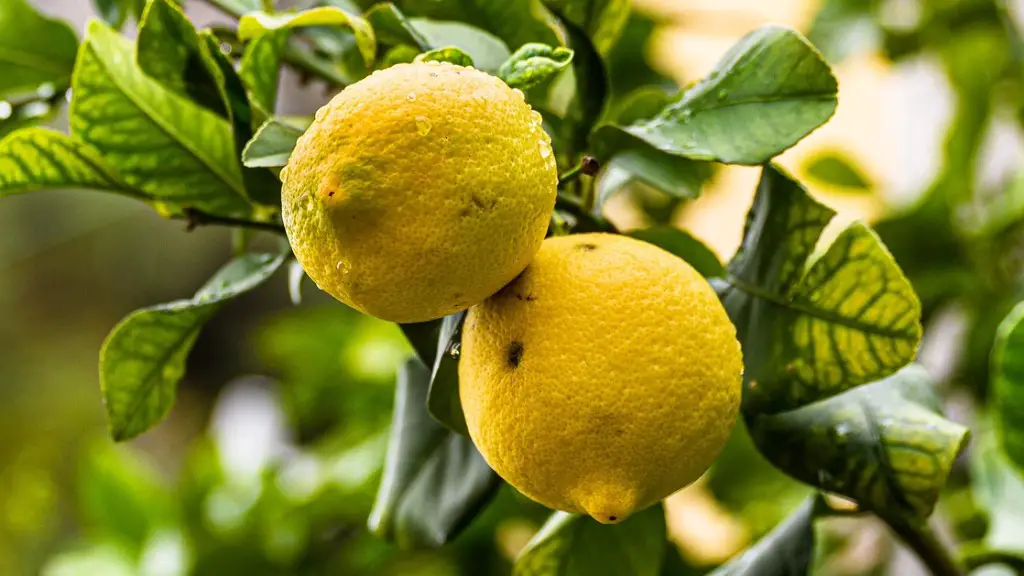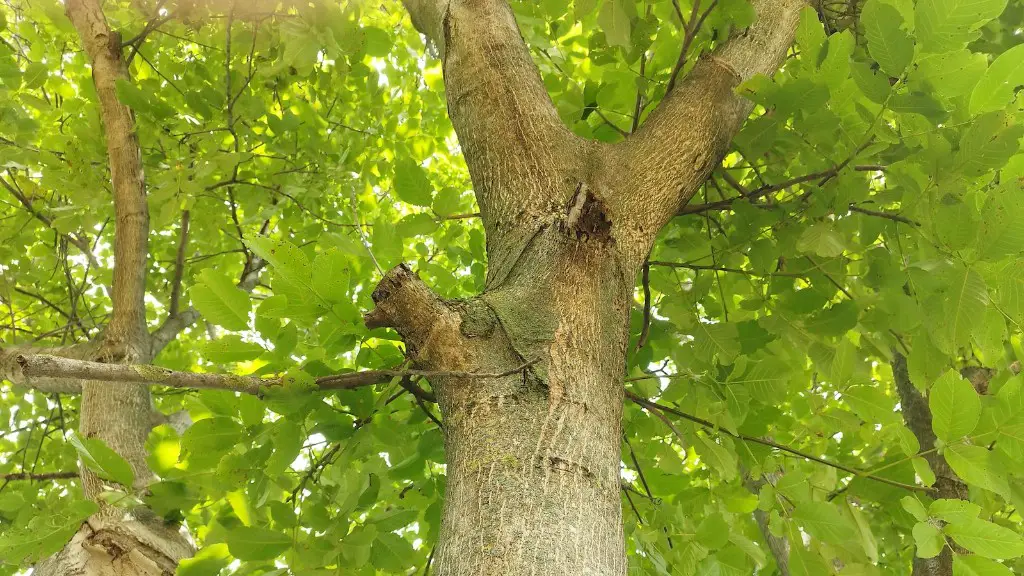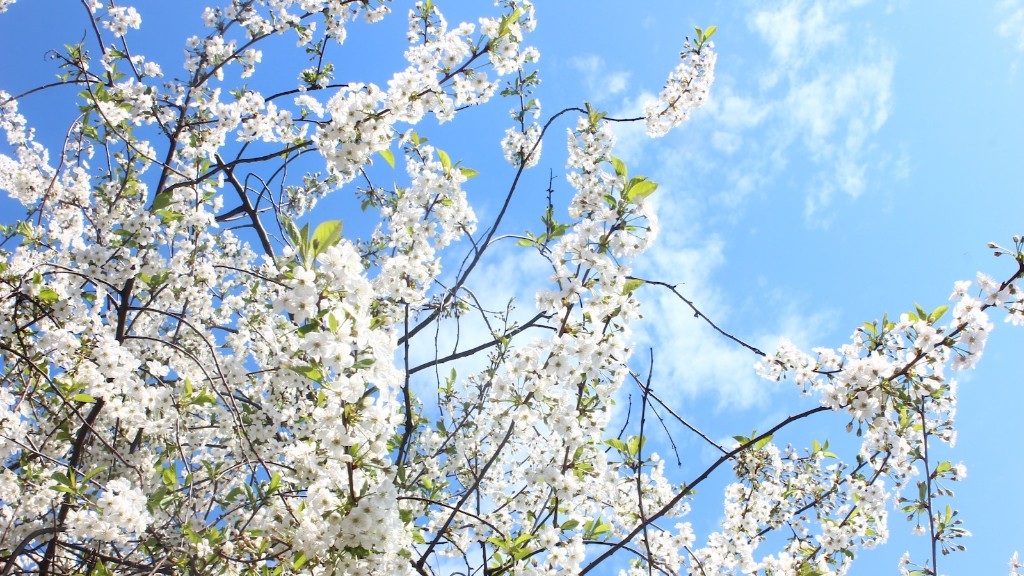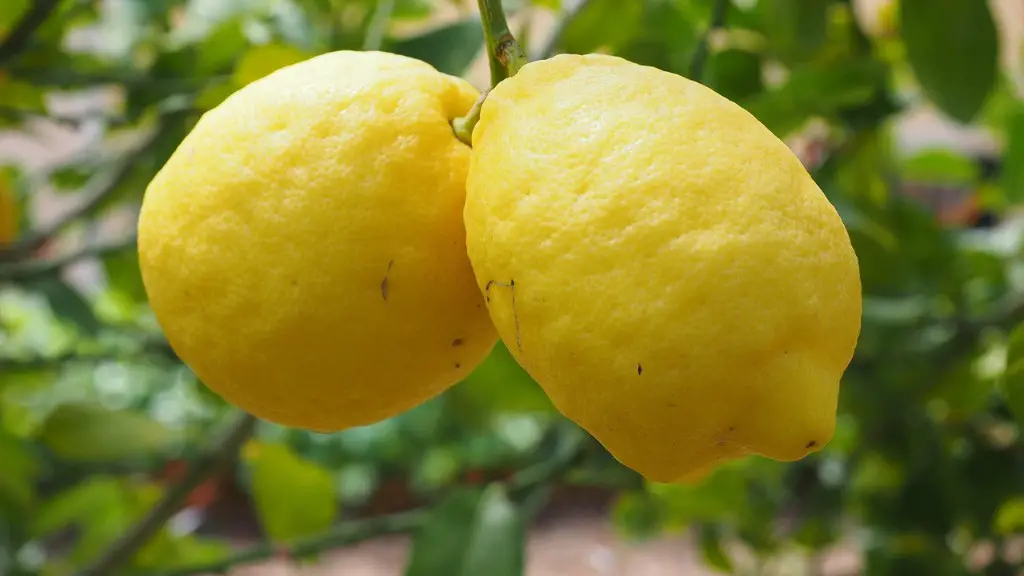Fruiting of lemon trees can be a cause of worry for many backyard gardeners. The potential causes of why a lemon tree is not producing fruit are numerous. The foremost reason can be the lack of pollinators in the area, such as bees. Without adequate pollination, a lemon tree cannot produce fruit.
Along with the lack of adequate pollinators, nutritional deficiencies can also inhibit a lemon tree from producing fruit. In order to obtain optimal production, it is essential that a lemon tree is given a balanced nutrient blend. This nutrient blend will create a robust environment for the tree to produce healthy fruit.
Proper health management is also needed for a tree to produce adequate fruit. Many plant diseases can occur in trees, such as root rot and leaf blight, and these can affect the productivity of a lemon tree. Adequate pruning and pest management can also help a lemon tree to produce healthy fruit.
In some cases, an immature age of a lemon tree can also be the cause of non-fruiting. A lemon tree needs to have proper age before it is able to produce fruit. Thus, if the tree is still in its juvenile stages, then it would not produce enough flowers of adequate size for pollination.
Another factor could be the incorrect pruning. Overpruning a lemon tree can lead to reduced flowering and could inhibit the pollination process. On the other hand, if the pruning is inadequate, then the production of fruit can also be stunted as the size of the fruit will decrease.
In some cases, lemon trees not producing fruit could also be due to low-chilling hours. Lemon trees require a certain amount of chilling hours in order to promote flowering and fruiting. Therefore, if the temperature of the environment is too warm throughout the winter season, then the tree might not proceed its fruit-bearing process.
Lastly, light exposure can also be a potential issue in a lemon tree not producing fruit. If the tree does not receive sufficient light for a few hours a day, then it might not establish enough flowers for pollination, leading to non-fruiting.
Pollination
Pollination is a major issue when it comes to why a lemon tree is not producing fruit. Bees, for example, are major pollinators for lemon trees, and without these, a tree is less likely to develop fruit. Having fewer bees in the area or keeping the lemon trees in palce where sufficient pollinators are not available are some of the foremost causes of a lemon tree not fruiting.
Moreover, inadequate nutrition can also inhibit pollination, as a healthy tree is likely to establish more blooms, which contributes to pollination. Adequate nutrient compounds such as nitrogen, phosphorus and potassium are highly essential and should be supplied to a lemon tree in balanced proportions.
Besides nutrition and pollinators, proper health management is also needed. Plant diseases, such as root rot and leaf blight, can significantly reduce the number of flowers for pollination. Therefore, it is essential that preventive measures are taken to avoid any diseases from occurring in lemon trees.
Furthermore, pruning is an important step and should be conducted with care. Excessive pruning of lemon trees can lead to fewer flowers and pollination, and if done inadequately, the size of fruit can decrease, leading to no or inadequate fruiting.
At the same time, chill hours play an important role in fruiting, as lemon trees require a certain amount of chill hours in order to promote fruit-bearing. Thus, in order for a lemon tree to establish adequate flowers for pollination and to bear fruit, it is essential that the temperature of the environment does not exceed too high and is conducive for the tree.
Nutrition
Nutrition is an integral factor when it comes to why a lemon tree is not fruiting. Many plant compounds, such as nitrogen, phosphorus, and potassium, are necessary for a lemon tree to produce adequate flowers for pollination and healthy fruit. Without an adequate blend of these compounds, a lemon tree will not have sufficient resources for fruit-bearing.
In addition to basic nutrients, other essential compounds such as calcium, magnesium and iron are also required, as they help in creating a robust environment for a tree. Moreover, pH levels also play an important role and should be within the range of 6.2 – 7.2 in order for a lemon tree to produce healthy fruit.
Besides the essential macro and micro-nutrients, a lemon tree also requires sufficient water for optimal production. Irrigation should be done regularly during its fruit-bearing season and should be stopped based on the weather conditions.
Furthermore, foliar sprays of plant compounds can also help a lemon tree to produce adequate fruit. These sprays help in boosting the health of a lemon tree and the production of healthy blooms for pollination.
At the same time, soil pH levels and nutrient availability have to be monitored regularly. If the pH level is not within the ideal range or if there is an imbalance of nutrients, then it is essential to take corrective actions immediately.
Age
Age is also a major issue when it comes to lemon tree not fruiting. If a lemon tree is newly planted, then it will require a few years to reach its maturity stage and to begin its fruit-bearing process.
A younger tree will require basic cultivation practices such as fertilization, pruning, and pest management. Further, a young lemon tree may require a season of just establishment before it starts producing enough flowers for pollination.
After reaching its maturity and beginning its fruit-bearing process, a lemon tree should be provided with essential nutrients, water, and pest control measures on a regular basis. If all of these elements are adequately met, then a lemon tree should produce enough flowers for pollination and abundant fruit.
At the same time, a proper environment should also be created for a lemon tree in order to promote optimal production. Proper temperature and light exposure, as well as pruning, can also be beneficial for the growth and development of a lemon tree.
Finally, in some cases, an older tree may also cease to produce fruit. In this case, it is essential to identify the underlying cause of non-fruiting, be it nutrient deficiency, lack of pollinators, or any other factor.
Light Exposure
Light exposure can also be a potential reason for a lemon tree not producing fruit. Generally, a lemon tree requires at least six hours of direct sunlight per day. If a tree does not receive enough light, then it might not produce sufficient flowers for pollination.
In addition to direct sunlight, a lemon tree can also receive a small amount of indirect light. This can help in providing extra energy to a tree and can also be beneficial in promoting healthy blooms and pollination.
Moreover, if a lemon tree is not receiving enough light, then its foliage may become dense and large. Such a dense canopy can create a form of self-shading, thereby reducing the amount of light that is penetrating through the foliage.
In addition to self-shading, improper pruning can also reduce the amount of light that is penetrating through the foliage. If pruning is done inadequate, then the foliage will be too dense for light to penetrate, leading to non-fruiting.
Furthermore, positioning of the tree can also be a potential issue, as different trees require different amounts of light. Thus, if a specific lemon tree is not receiving adequate light, then it should be planted in a location that is appropriate for its growth and development.
Finally, if the temperature of an environment is warm and the tree is receiving less or no sunlight, then it can stunt the growth of a lemon tree. Thus, it is essential that the amount of light to a lemon tree is monitored regularly for optimal fruit production.



